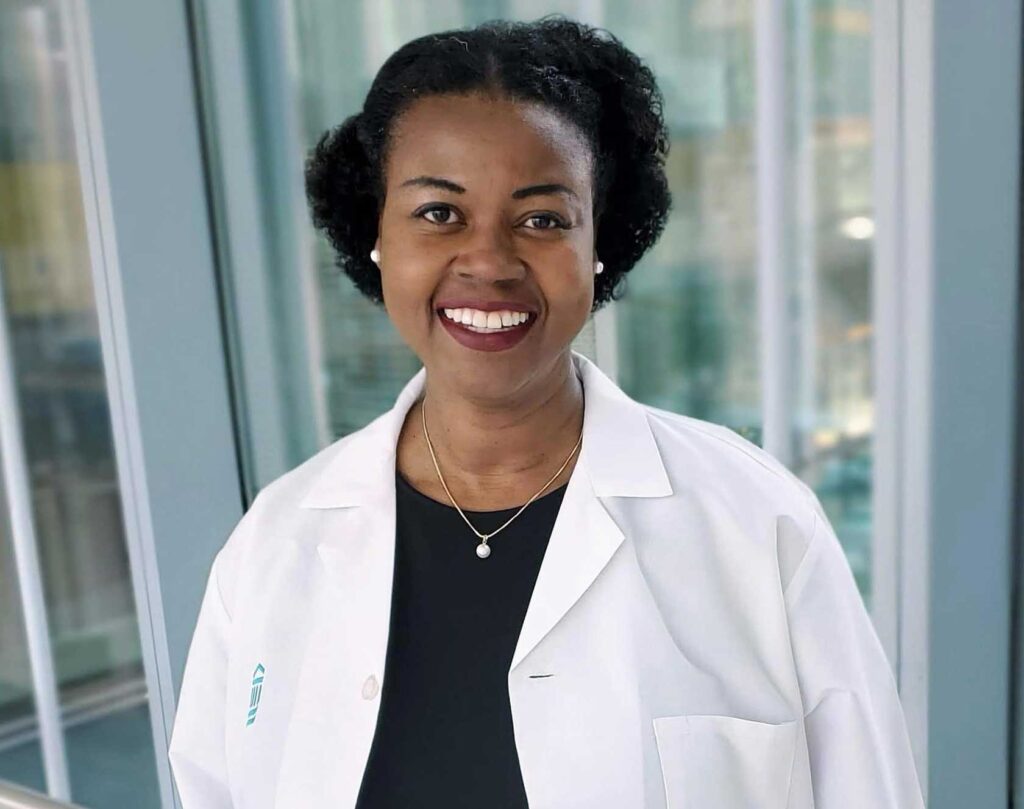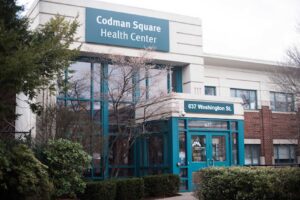
Three health centers in the metro Boston area will pilot research to address health care inequities in communities historically affected by slavery through a Harvard University grant.
The funding, announced last month, will support two years of investigating efforts to better serve so-called “descendent communities” — populations facing the ramifications of slavery.
Any research generated by the project is likely to support the system at each health center as a whole, said Dr. Cheryl Clark, an associate professor of medicine at Harvard Medical School and executive director of the Massachusetts League of Community Health Center’s Institute for Health Equity Research, Evaluation & Policy, which organized the research effort that it’s calling the INSPIRE project.
“We expect that everyone will benefit from this work, and the health centers who have been selected and who have stepped up to do this work are also dedicated to making sure descendant communities are benefiting,” she said.
Under the program, $350,000 in grant funding will support staff at Codman Square Health Center in Dorchester and Brockton Neighborhood Health Center — as well as a third, yet-to-be-selected facility — in doing community-based research looking to identify challenges and innovate solutions for disparities in care.
The effort elevates longer-standing scholarship efforts at community health centers, Clark said.
“Communities who have suffered trauma from enslavement and all of the proxies that happened after that, are communities that are very well served by health centers, but health centers do not always get the funding and the infrastructure that’s needed to make sure that these communities get the benefits of innovations and research,” Clark said.
“We were very motivated to take advantage, to take the opportunity to further support the infrastructure for health centers to serve communities that have been so disenfranchised and so impacted by this legacy of slavery,” she added.
These organizations aren’t strangers to efforts aimed at advancing the needs of communities that have often been left out, said Tarsha Weaver, chief project officer at Codman Square Health Center.
“We’ve been serving communities that have been disenfranchised and marginalized, so we’re comfortable in that space,” Weaver said. “We’re comfortable in being able to do the research needed to really be able to document, demonstrate, evaluate our efforts so that additional initiatives like this can be supported.”
The Harvard-funded program comes as part of the Institute of Health Equity’s work around what its leaders describe as “emancipatory research,” focusing on investigating disparities in health equity in a way that moves the needle. The institute is part of the Massachusetts League of Community Health Centers, a statewide equity organization that supports the local health care organizations.
“You have to get past documenting the problem, towards figuring out how to partner and how to build the kinds of interventions that address these underlying conditions,” Clark said. “That requires networking with community-based organizations. It requires making sure that we find people who have the lived experience to frame programs and projects appropriately and to put those solutions in place.”
For the new programing, that includes supporting researchers on the ground in a way that aims to develop new solutions to health care problems. Clark called that frontline vantage point a critical part of what the Institute is trying to do.
The funding will also support descendant communities even before the research generates new information.
Clark said she expects that some of the staff involved with the research will be from descendant communities. Through Codman Square Health Center in particular, the funding will also support local students in Randolph, where the Dorchester-based health center, alongside the town and the Randolph school system, is building a new site at the city’s high school, by offering internship experiences for students to explore health-focused careers.
“We thought this was a great initiative and partnership to give youth of color who are descendants of slaves an opportunity for internships, and then also for individuals at Codman an opportunity for professional growth,” Weaver said.
Research funded by the Harvard grant will be piloted by four high-school-aged kids per year in addition to the 10 professional staff from the health centers.
When it comes to supporting youth, Clark pointed to Codman Square Health Center’s track record in working with young people. Currently, the health center runs a partnership with Codman Academy, a charter high school located within its facilities, as well as a school-based health center at TechBoston Academy.
She called the inclusion of students’ participation an important step in developing the next generation of scholars and health care professionals.
“Being able to partner with Codman … gives us that hope that that future generations will benefit from this work and will become the scholars that take care of descendant communities in the future,” Clark said.
Weaver, too, said the funding is one step in a vision to create a health career pipeline for youth of color to explore jobs in the industry and serve as change agents on issues directly affecting them.
The effort comes amid a broader push across the city and state to diversify the life sciences industry in Massachusetts.
The grant for the research at the health centers joins 13 other projects in the inaugural class of recipients of funding from the Reparative Partnership Program of the Harvard & the Legacy of Slavery Initiative. Other projects are targeting efforts across areas of economic mobility, education, criminal justice, environmental justice and health care, largely aiming to focus impact in Boston and Cambridge.







